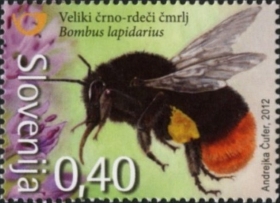The legislation suspends certain uses of neonicotinoids, a particular type of pesticide that is suspected to play a role in the bee die-offs happening in Oregon and in bee declines around the world, until the Environmental Protection Agency reviews these chemicals and makes a new determination about their proper application and safe use. Dinotefuran, the neonicotinoid ingredient in Safari insecticide, is blamed for last month’s mass die-off in Wilsonville, OR of an estimated 50,000 bumble bees – the largest such die-off ever recorded. The Oregon Department of Agriculture is investigating the die-off and is temporarily restricting the use of 18 pesticide products containing dinotefuran.
Blumenauer has long sought federal funding for increased research on pollinators, protections for declining bee populations, and is the co-founder and co-chair of the Congressional Pollinators Caucus. He was joined at the announcement event by Scott Hoffman Black, Executive Director of the Xerces Society, who discussed the specifics of the Oregon die-off and how to prevent future incidents, and Lori Vollmer, the owner of Garden Fever nursery in Portland, who stopped selling neonicotinoid products after the Wilsonville disaster.
“Pollinators are not only vital to a sustainable environment, but key to a stable food supply,” Blumenauer said. “When incidents like the alarming bee die-off in Wilsonville occur, it is imperative that we take a step back to make sure we understand all the factors involved and move swiftly to prevent similar tragedies from happening in the future.”
“It is time for the Environmental Protection Agency to take a stronger stance on pollinator protection.” said Scott Hoffman Black, Executive Director of the Xerces Society. “The European Union has put restrictions in place on several neonicotinoids -- we need a similar response here.”
Source:
Oregon Live, 12 July 2013
http://www.oregonlive.com/environment/index.ssf/2013/07/legislation_to_…

- Login om te reageren
